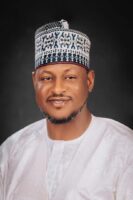Former British diplomat David Roberts has joined the Federal Government in strongly rejecting viral claims of a so-called “Christian genocide” in Nigeria, describing such reports as false, exaggerated, and potentially harmful.
Roberts, who previously served as Director of the British Council in Abuja and spent years travelling across Nigeria, stated that while Nigeria does face serious security challenges, they are being misrepresented by foreign commentators and Western interest groups.
“Yes, there are security challenges in Nigeria, but those issues have affected the country from the pre-colonial, colonial, and now the post-colonial periods,” Roberts said, adding, “Ample evidence exists to show that the Nigerian government is de-escalating the violence.”
The controversy arose after a video circulated online, in which an unidentified man with a Nigerian accent claimed that over 500,000 Christians were killed in Nigeria in the past year. The clip was amplified by some international influencers on X, including Radio Genoa, an anti-Islamic account known for promoting divisive content.
American talk show host Bill Maher, citing the video on his long-running show Real Time with Bill Maher, claimed that Christians in Nigeria were being systematically exterminated.
In response, Nigeria’s Minister of Information and National Orientation, Mohammed Idris, and former presidential aide Reno Omokri swiftly debunked the genocide claims, labeling them as grossly misleading and unsupported by facts.
READ ALSO: FG Slams Critics Over Religious Genocide Claims
Roberts backed their stance, emphasizing that both Muslims and Christians in Nigeria have been victims of violence—contrary to the narrative of religious persecution targeting only one group.
“I lived in Nigeria as a British diplomat and toured the entire country. It is ridiculous for anyone even to suggest that half a million people were killed as part of a genocide against Christians in Nigeria by Muslims last year alone,” Roberts stated.
“And this is not just some Christian genocide. In fact, more Muslims are killed in these attacks in Nigeria than Christians — a fact highlighted by the Institute for Economics and Peace in their annual Global Terrorism Index.”
He further explained that insecurity in Nigeria has been exacerbated by regional instability, particularly due to the political crises in neighbouring Sahel countries like Mali, Burkina Faso, and Niger. These nations share porous borders with Nigeria’s Northwest and Northeast—areas that have become hotspots for extremist violence.
“As these countries typically share a border with the Northwest and Northeast of Nigeria, which are the Islamic heartlands, it has meant that Muslims have borne the brunt of the situation more than Christians, which is not to say Christians are not affected,” he noted.
Roberts warned that sensationalist and inaccurate narratives could inflame tensions and provoke international consequences.
He urged Western media and policymakers to exercise caution in their reporting and analysis, cautioning that reckless claims could further destabilize the region and trigger a new wave of migration across the Mediterranean.
“Responsible discourse is essential, especially when the consequences could fuel conflict or mass displacement,” he said.





